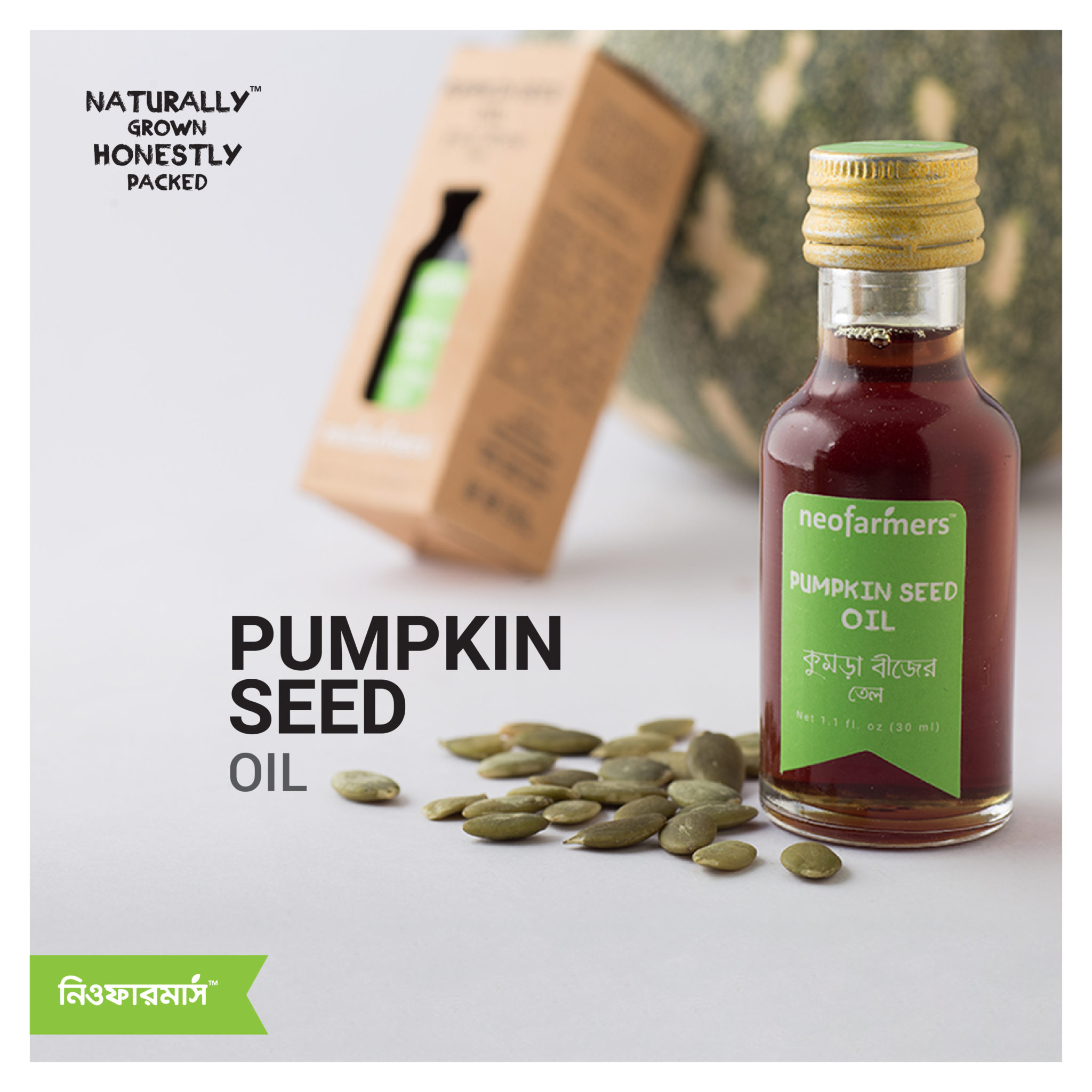- You have no items in your shopping cart
- Subtotal: 0.00৳
Pumpkin seed oil
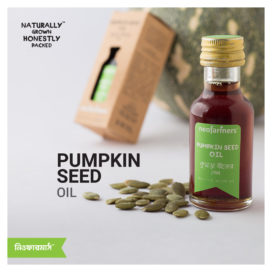
Many plant-based oils have gained great reputations for their healthy fats and wellness benefits. One of these is pumpkin seed oil. Much like Almond oil, coconut oil, or flaxseed oil, there are many health claims and properties attributed to pumpkin seed oil.
You may think of pumpkin as a festive fall decoration or the ingredient for the perfect pie, but pumpkin has other uses. Pumpkin seed oil, for example, has certain health benefits. Pumpkin seed oil is said to help promote urinary health and heart health. It’s full of vitamins and anti-inflammatory agencies, along with linoleic and oleic acid. Here’s what you need to know about this fruit’s potential health benefits.
Mental health benefits
Traditionally, pumpkin seed oil and pumpkin seeds in general have been said to boost mood and ward off depression. It showed positive results from giving pumpkin seeds to children with depression.
Heart condition betterment
You may know that saturated fats aren’t good for healthy hearts. But it can still be confusing to know which fats are OK to eat. Pumpkin seed oil is actually an unsaturated fat, meaning it’s the “good” kind of fat. Unsaturated fats like pumpkin seed oil can actually promote a healthy heart.
Pumpkin seed oil not only helped lower cholesterol, but it also had anti-inflammatory effects. The oil has also been shown to lower blood pressure
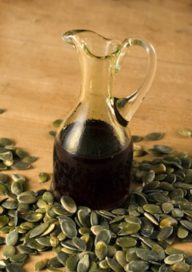
Effects on prostate health
Pumpkin seed oil, along with palmetto oil, has shown promising results as an alternative therapy for benign prostate hypertrophy (BPH). BPH is a common condition where the prostate becomes enlarged. This can be extremely painful and block the flow of urine.
Recovery of urinary system
In general, pumpkin seed oil seems to have a positive effect on the urinary tract. This tract is made up of the kidneys, the bladder, and the urethra, which connects the bladder to the urinary opening.
Effects on menopause
In one Source, pumpkin seed oil was found to help relieve some of the symptoms of menopause. This included a decrease in hot flashes, joint pain, and headaches. The women taking pumpkin seed oil also had an increase in their HDL levels, which is the “good” cholesterol.
How to Consume-
The oil is not used in cooking, since it can become bitter when heated. Instead, take advantage of its intense, nutty taste whisked into vinaigrettes, drizzled over soups, or even spooned on vanilla ice cream. Or just pour a small pool into a dish and enjoy it plain with bread.
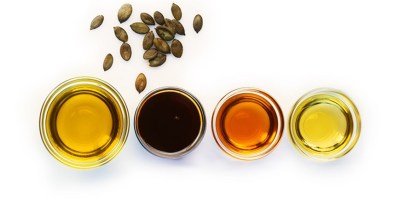
For hair and skin
Pumpkin seed oil (PSO) is rich in vitamin E, zinc, omega 3- and 6- fatty acids as well as antioxidants, therefore it has tremendous benefits for the skin in terms of retaining moisture, fighting free radicals and maintaining a youthful appearance. It improves skin tone as it is packed with zinc and vitamin E, which actually helps improve skin tone and brighten your complexion. And it Helps strengthen hair shaft while promoting the natural balance of sebum for shiny vibrant hair. An essential B-vitamin also known as B7, is the hair growth champion.
How to use-
Shampoo your hair like normal. Avoid putting product in hair afterward.
- Gently warm pumpkin seed oil with a double boiler.
- Wet hair and massage warm oil into your scalp.
- Once applied, wrap your hair and head in a hot towel.
Remove towel, then shampoo, condition, and style.Use it on skin as a short time moisturizer
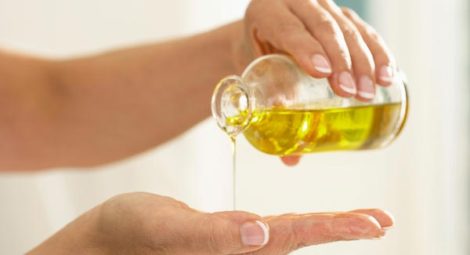
Although more research is needed to confirm if pumpkin seed oil can treat hair loss, it’s a relatively safe natural treatment. It may take several weeks before you see any results.
Stop using pumpkin seed oil if you develop any symptoms of an allergy, such as redness or itching where you applied the oil.

